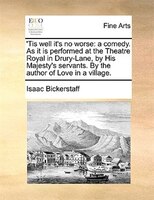
- Browse Category
Subjects
 We Begin at the EndLearn More
We Begin at the EndLearn More - Choice Picks
- Top 100 Free Books
- Blog
- Recently Added
- Submit your eBook
password reset instructions

Lee Jung Seob (Seop) was born in 1956 to a rich family in the now North Korea region of Pyeongwon, South Pyeongan Province. He studied in Pyeongyang, Jeongju (situated in North Pyeongan Province in North Korea) and Tokyo. During the Japanese colonial period, he started his career as an artist. He went back to Wonsan, South Hamgyeong Province (North Korea) and remained here until Korea got back its independence in the year 1945. During the Korean War of 1950 to 1953 he sought refuge from the war in Busan and Jeju Island. He still kept on moving from one place to another even after the end of the war; he moved around Tongyeong, Seoul, and Daegu. Lee died in 1956 at 41 years of age. Despite where he was located or the terrible conditions of life, Lee insistently carried on with his strong interest in artistry.
Despite living during the most unstable times in the Korean history characterized by colonial administration, warfare and disunity, Lee maintained his way of living and continued using his artistic skills to convey his thoughts and feelings. Even through the colonial administration when the Japanese suppressed any symbols of Korean culture and customs, Lee fearlessly created bull paintings; a long-established representation of the people of Korea. In spite of the prevailing conditions at the time such as poverty, impermanence and war he still created paintings that made people happy despite the hardships, demonstrating the cheer and happiness of his childhood days.
In the aftermath of the warfare he focused on bull painting inculcated with energy that proclaimed his determination and belief. Most importantly Lee strived to truly and honestly convey his emotions in his works of art. Additionally he desired to represent the Korean people by actualizing the traditional principles of art of Korea as a country. However Lee's life was without a doubt full of misfortune; he got detached from his family, lived his final days in desolate isolation while agonizing from anorexia and mental illness, was swindled of his money and got into debt. As it happens to very many artists, Lee died in isolation and left behind a trail of desolate, sad works of art.
Meet the man, the artist, the master of Korean modern painting we lost too soon, through his work collection including the famous ox paintings and tinfoil paintings.
Less- File size
- Print pages
- Publisher
- Publication date
- Language
- ISBN
- 10 X 8 X 0.17 in
- 84
- Woosung Kang
- April 19, 2017
- English
- 9791188195039



























